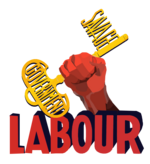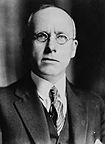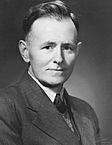
Michael Joseph Savage was an Australian-born New Zealand politician who served as the 23rd prime minister of New Zealand, heading the First Labour Government from 1935 until his death in 1940.

Peter Fraser was a New Zealand politician who served as the 24th prime minister of New Zealand from 27 March 1940 until 13 December 1949. Considered a major figure in the history of the New Zealand Labour Party, he was in office longer than any other Labour prime minister, and is to date New Zealand's fourth-longest-serving head of government.

Sir Walter Nash was a New Zealand politician who served as the 27th prime minister of New Zealand in the Second Labour Government from 1957 to 1960. He is noted for his long period of political service, having been associated with the New Zealand Labour Party since its creation.

Sir Arnold Henry Nordmeyer was a New Zealand politician and Presbyterian minister. As a member of Parliament (MP) he played a crucial role in the Labour Party, serving from 1935 to 1969. He served as minister of finance (1957–1960) and later as leader of the Labour Party and leader of the Opposition (1963–1965). Although he was a prominent statesman, Nordmeyer never ascended to the role of prime minister.

The 1943 New Zealand general election was a nationwide vote to determine the shape of the New Zealand Parliament's 27th term. With the onset of World War II, elections were initially postponed, but it was eventually decided to hold a general election in September 1943, around two years after it would normally have occurred. The election saw the governing Labour Party re-elected by a comfortable margin, although the party nevertheless lost considerable ground to the expanding National Party.
The Democratic Labour Party (DLP) was a left-wing political party in New Zealand in the 1940s. It was a splinter from the larger Labour Party, and was led by the prominent socialist John A. Lee.
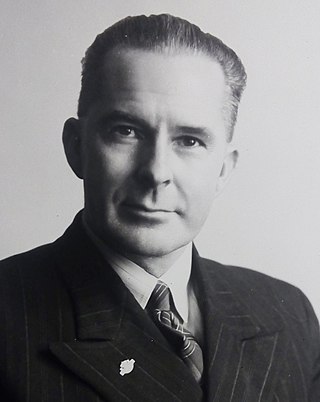
Clarence Farrington Skinner, commonly known as Jerry or Gerry Skinner, was a Labour politician from New Zealand, the third deputy prime minister of New Zealand between 1957 and 1960, and a minister from 1943 to 1949 and 1957 to 1960 in the First and Second Labour governments.

David Gervan McMillan was a New Zealand politician of the Labour Party, and a medical practitioner.

William John Lyon was a New Zealand politician of the Labour Party. He was killed in World War II while serving with the 2nd New Zealand Expeditionary Force.
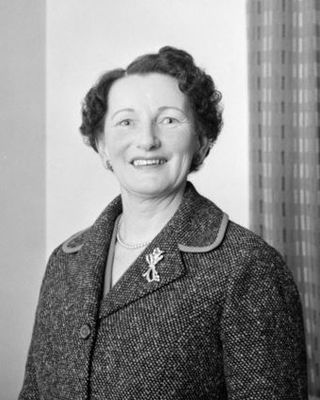
Ethel Emma McMillan was a New Zealand politician of the Labour Party. She was a Member of Parliament for Dunedin electorates for 22 years, but despite her political seniority, was not appointed a cabinet minister. She was very active in local affairs in Otago and was the first woman to be elected to Dunedin City Council.
The Social Security Act 1938 is a New Zealand Act of Parliament concerning unemployment insurance which established New Zealand as a welfare state. This act is important in the history of social welfare, as it established the first ever social security system in the world.
The New Zealand Labour Party leadership election, 1919 was held on 27 August 1919 to choose the next leader of the New Zealand Labour Party. The election was won by Grey MP Harry Holland.
The 1965 New Zealand Labour Party leadership election was held on 9 December 1965 to determine the future leadership of the New Zealand Labour Party. The election was won by Lyttelton MP Norman Kirk.

The 1933 New Zealand Labour Party leadership election was held on 12 October 1933 to choose the third leader of the New Zealand Labour Party. The election was won by Auckland West MP and incumbent deputy-leader Michael Joseph Savage.

The 1951 New Zealand Labour Party leadership election was held on 17 January to choose the fifth leader of the New Zealand Labour Party. The election was won by Hutt MP and incumbent deputy-leader Walter Nash.

The 1963 New Zealand Labour Party leadership election was held on 26 February to choose the sixth leader of the New Zealand Labour Party. The election was won by Island Bay MP Arnold Nordmeyer.

The Lee affair was an event that transpired in the late 1930s in New Zealand revolving around the unequivocally socialist Labour Party MP John A. Lee, and his repeated public critiquing of his party's leadership. The affair culminated with Lee's expulsion from the Labour Party. Lee then formed his own political party, the further-left Democratic Labour Party, causing a sizeable rift in party membership. The events have been described as the Labour Party's first major crisis of identity, the nature of which and manner of its resolution significantly affecting the subsequent development of the party for decades. Lee's biographer Erik Olssen stated that the Lee Affair "marked a key battle in the triumph of authority over democracy."
The 1923 New Zealand Labour Party leadership election was held in February 1923 to determine the future leadership of the New Zealand Labour Party. The election was won by Buller MP Harry Holland, once again retaining office.
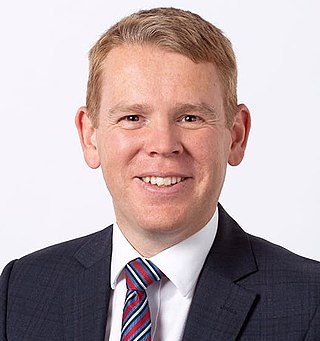
The leader of the Labour Party is the highest-ranked political position within the New Zealand Labour Party, who serves as the parliamentary leader and leading spokesperson of the party. The current leader is Chris Hipkins, after Jacinda Ardern resigned.

The 1940 New Zealand National Party leadership election was held to determine the future leadership of the New Zealand National Party. The election was won by Christchurch North MP Sidney Holland.
